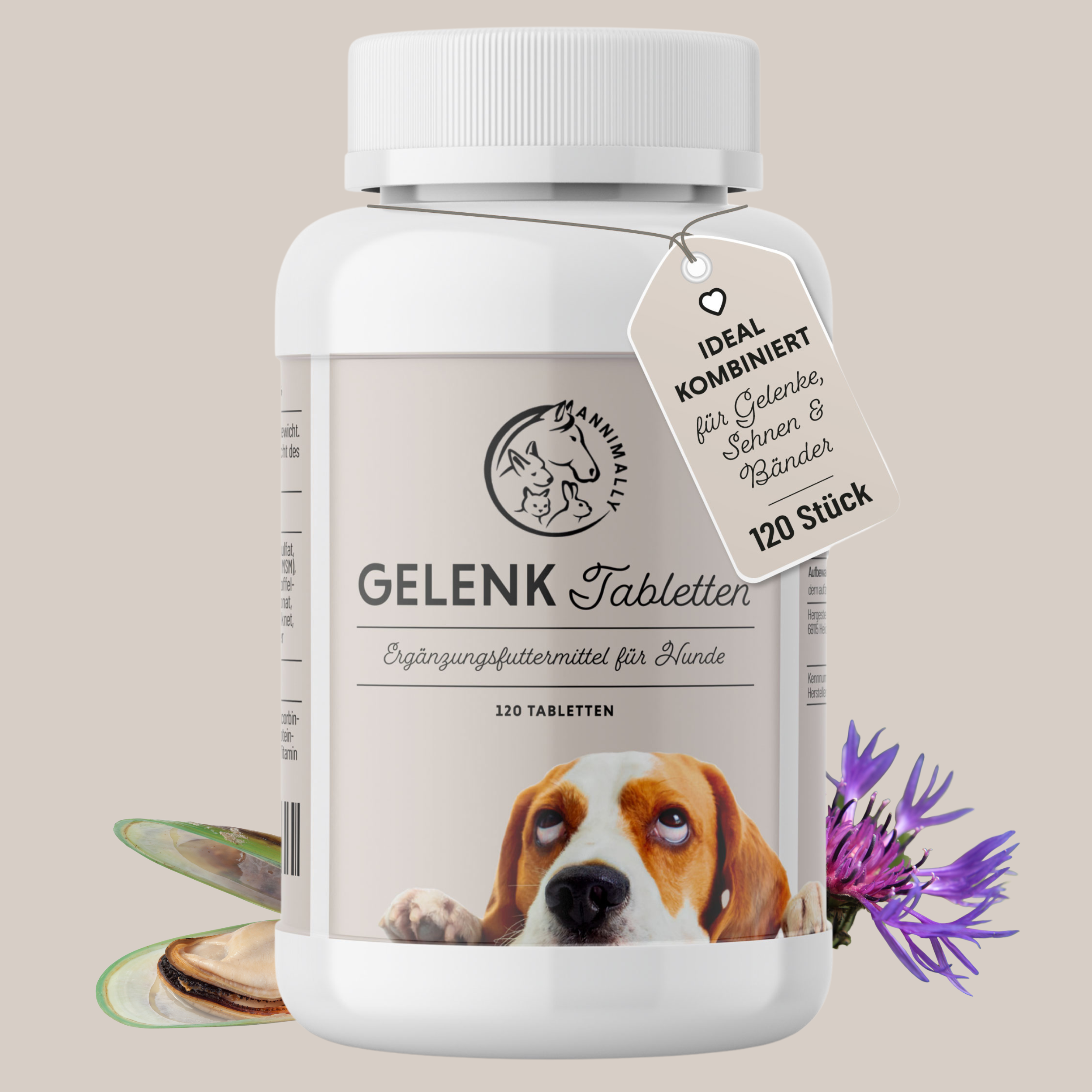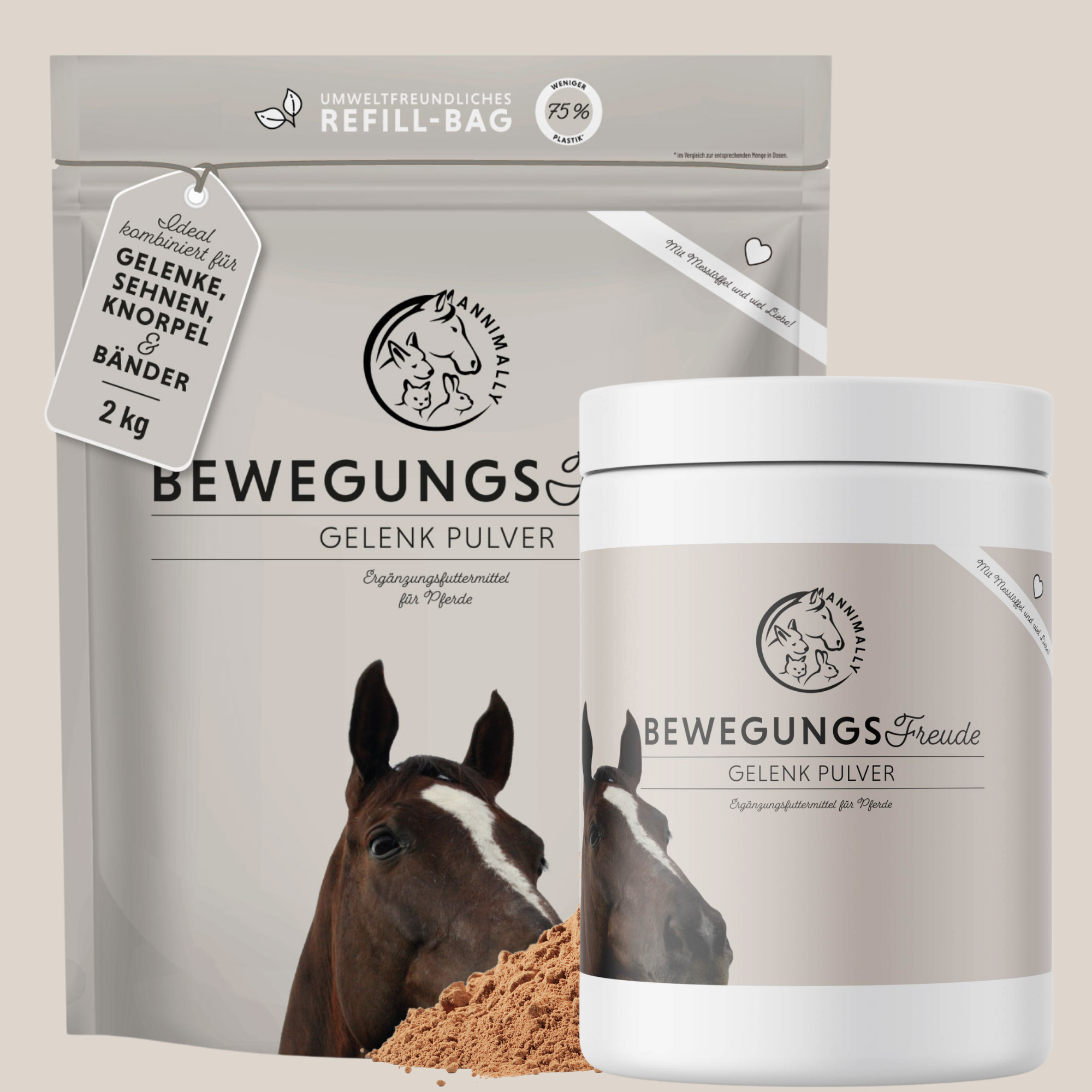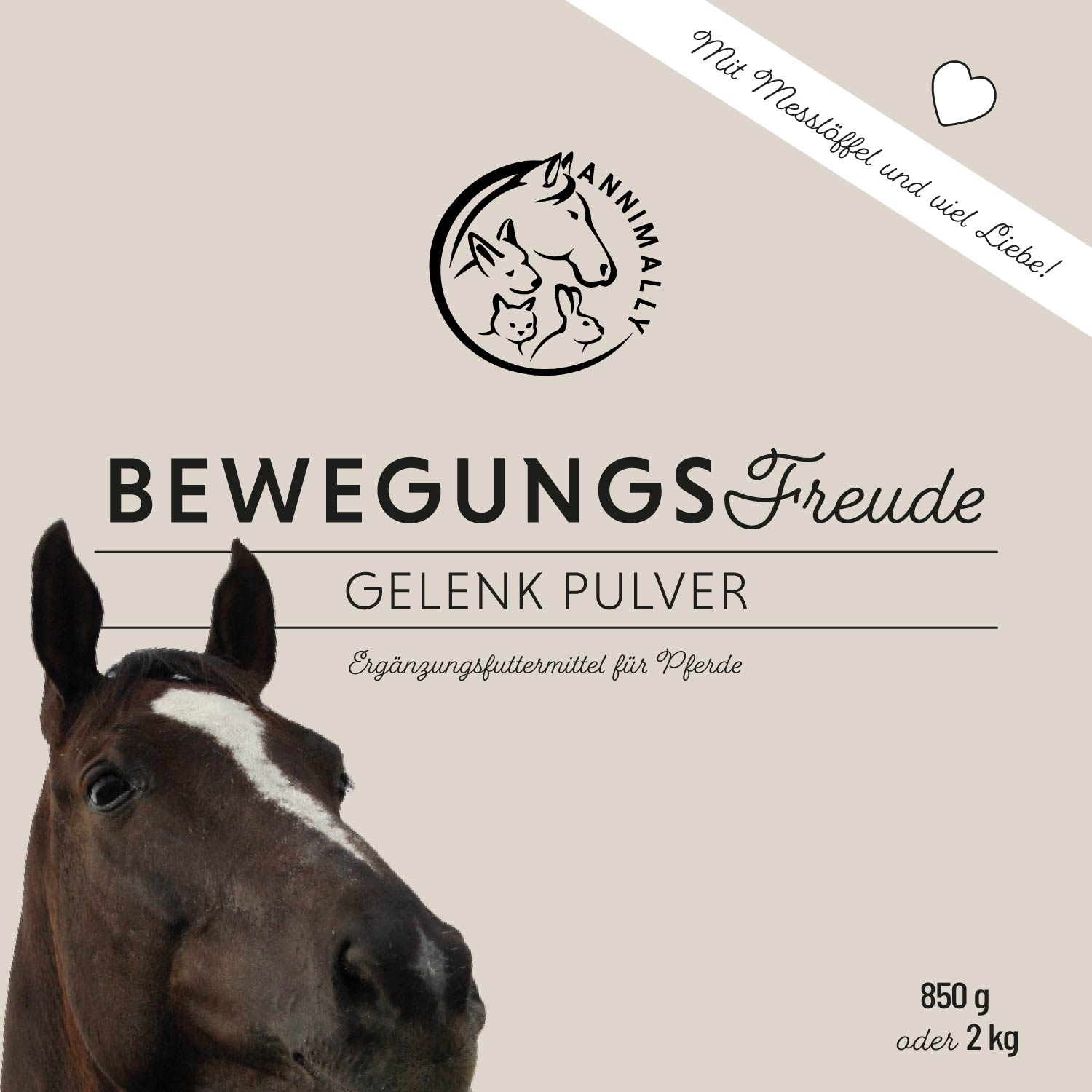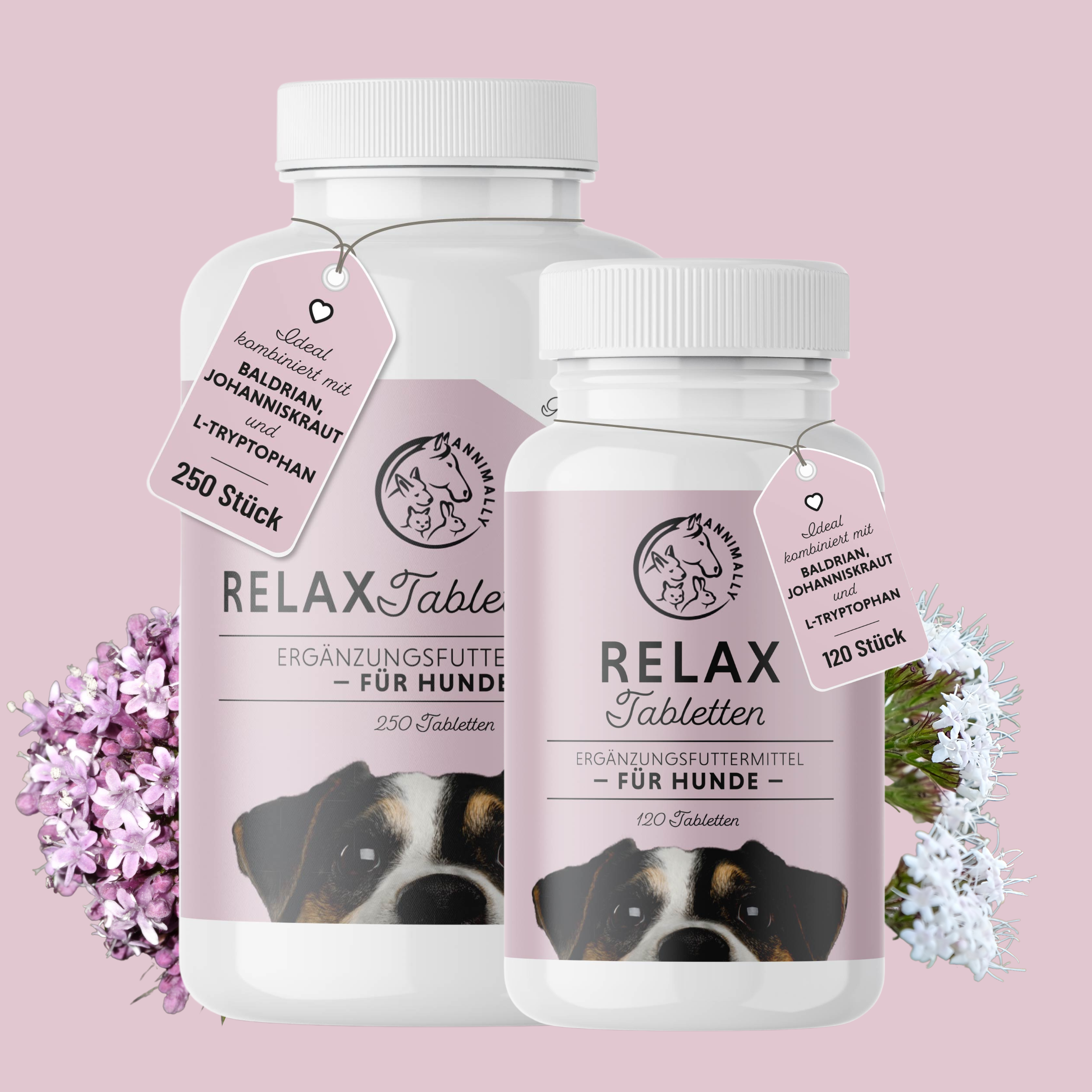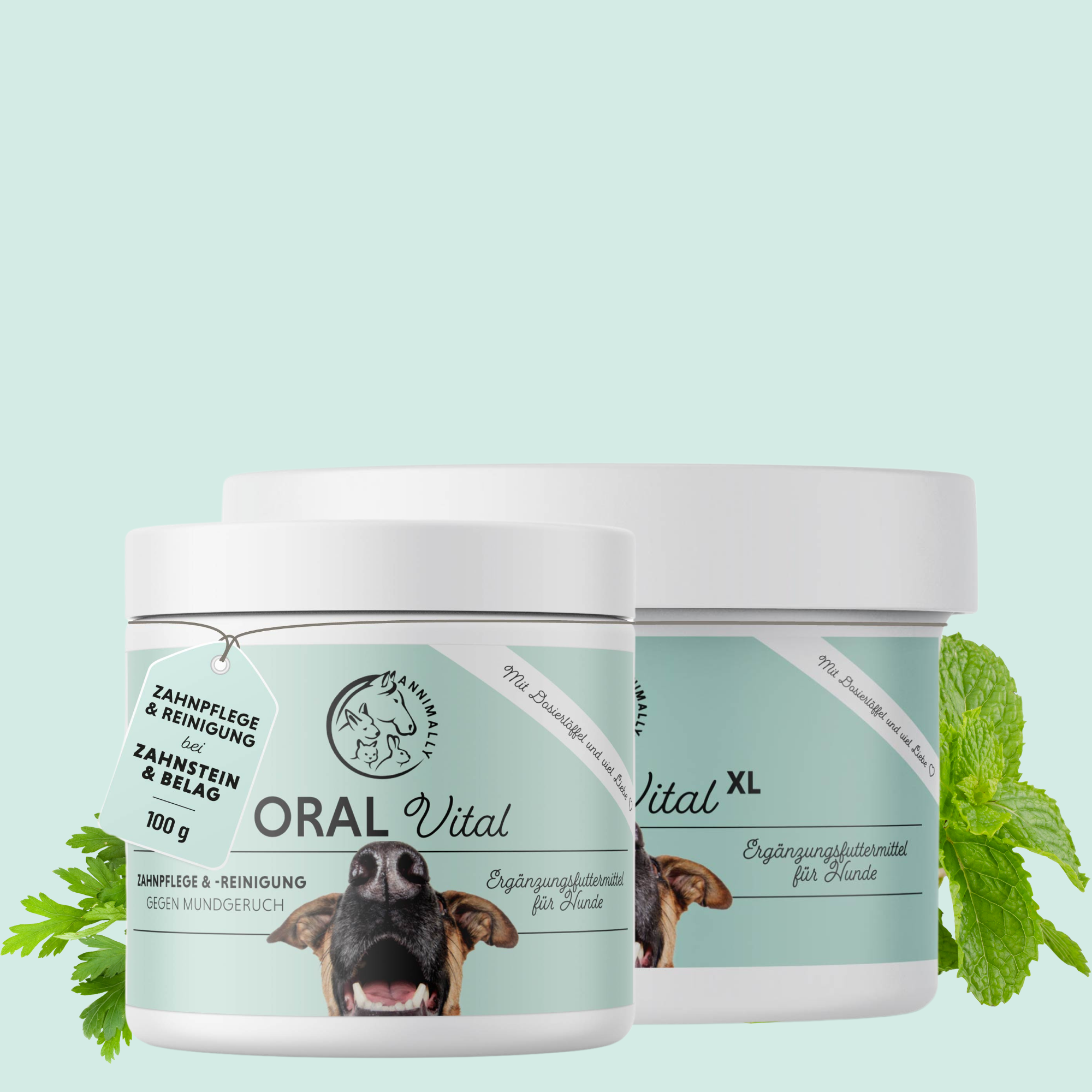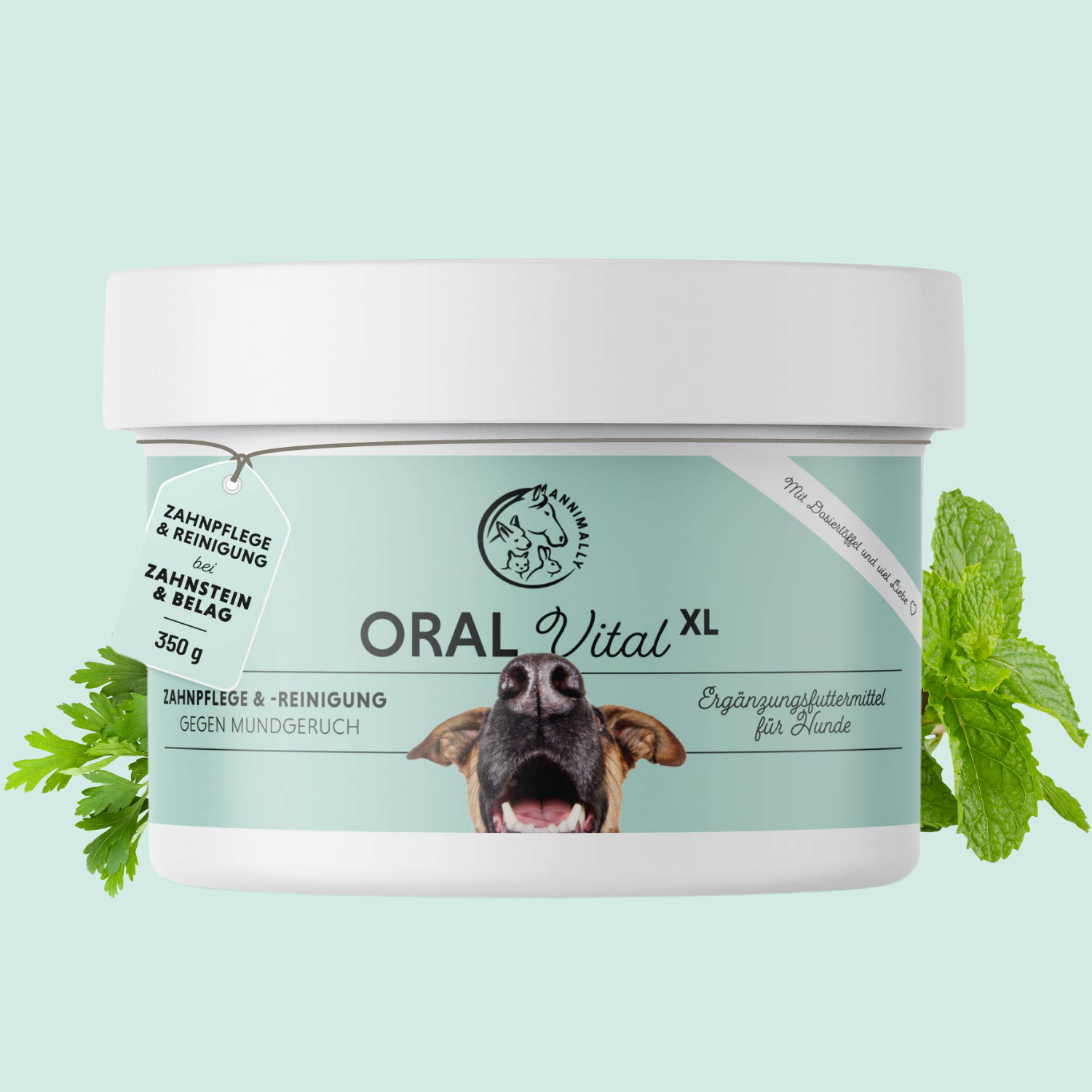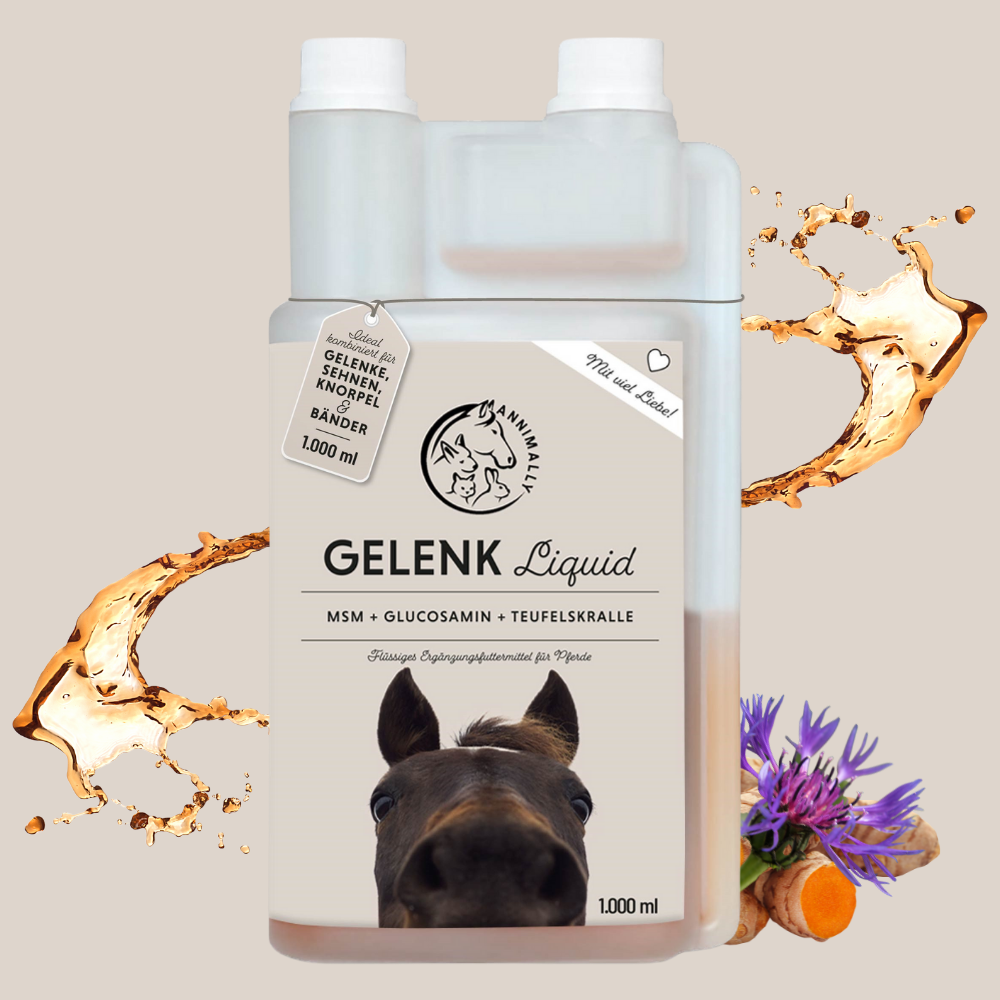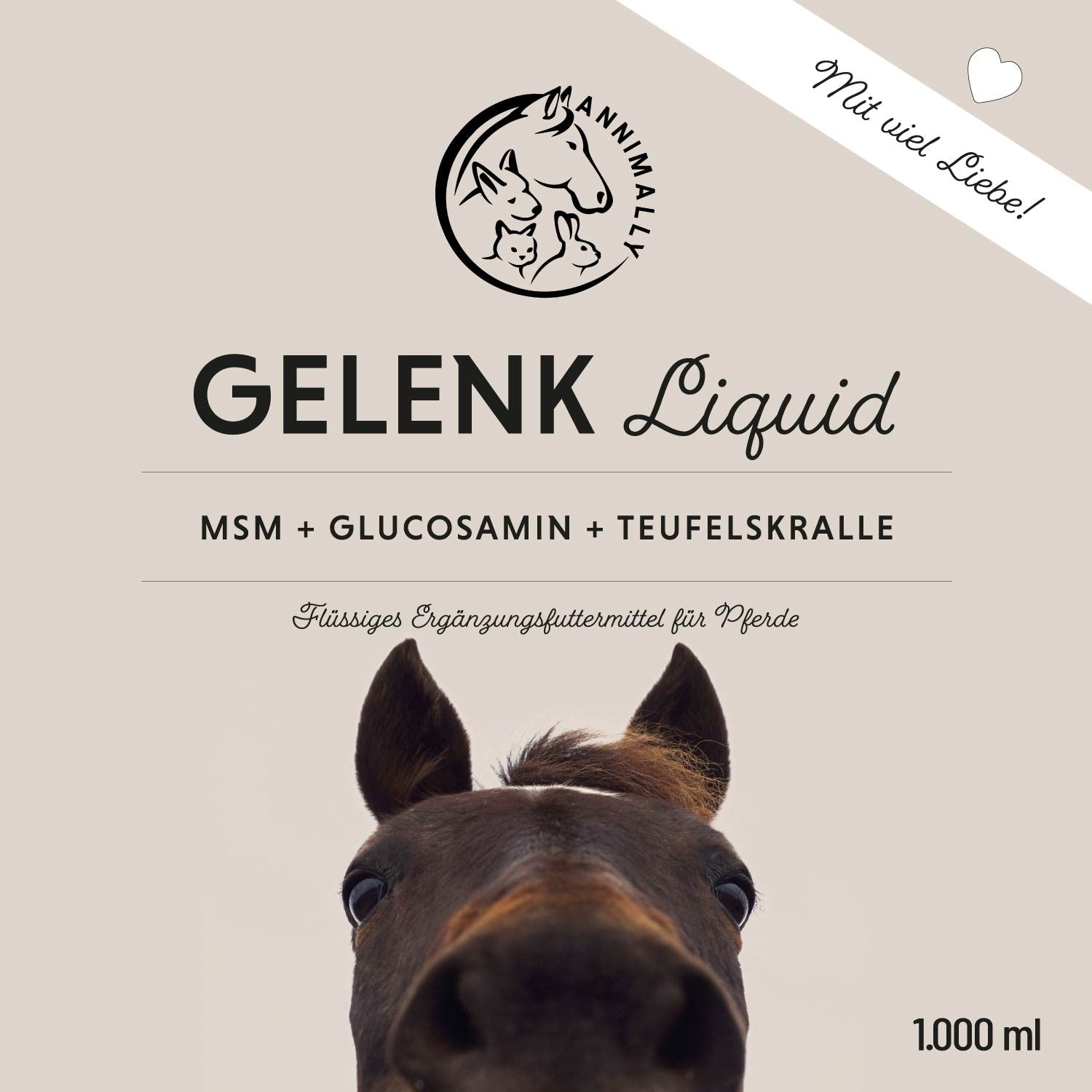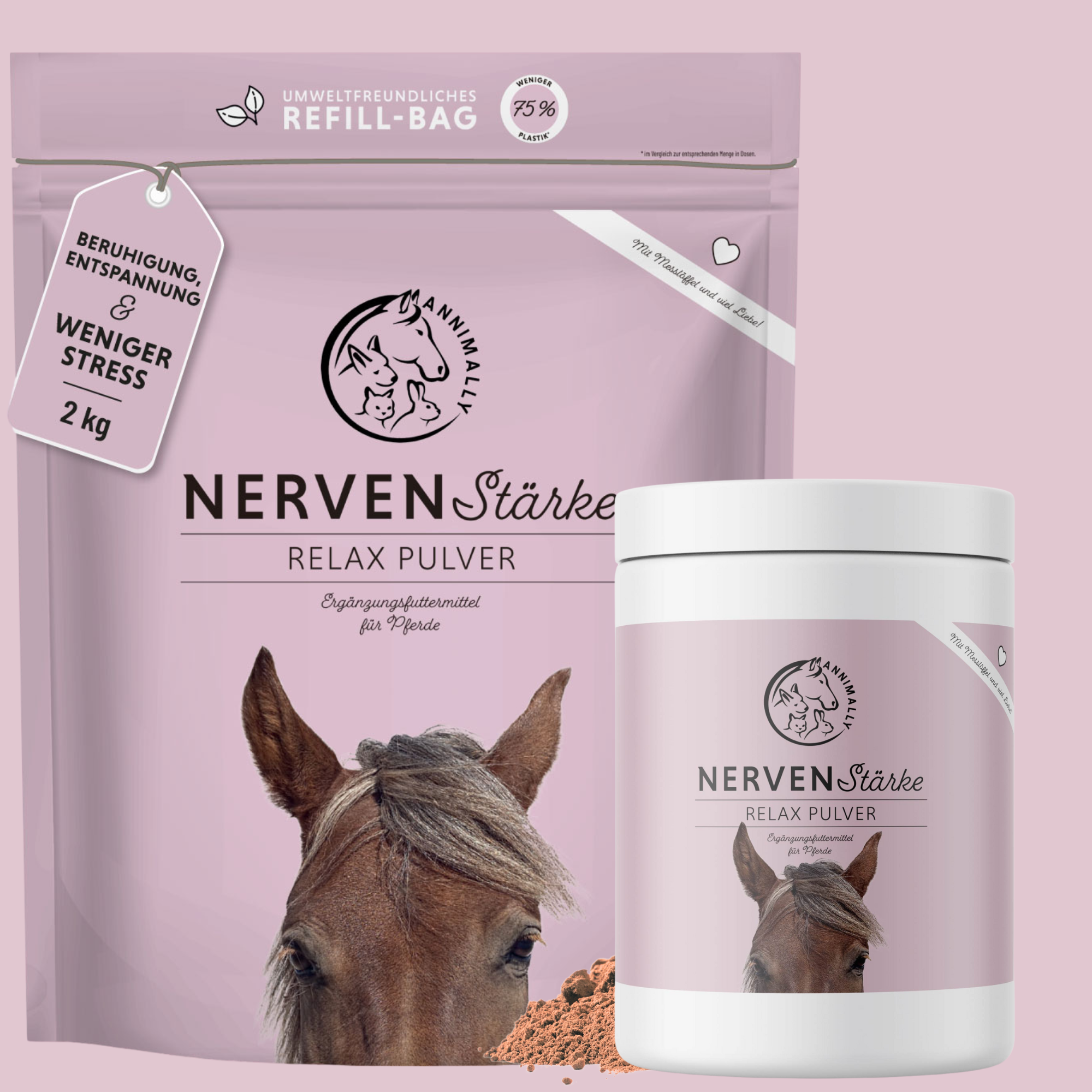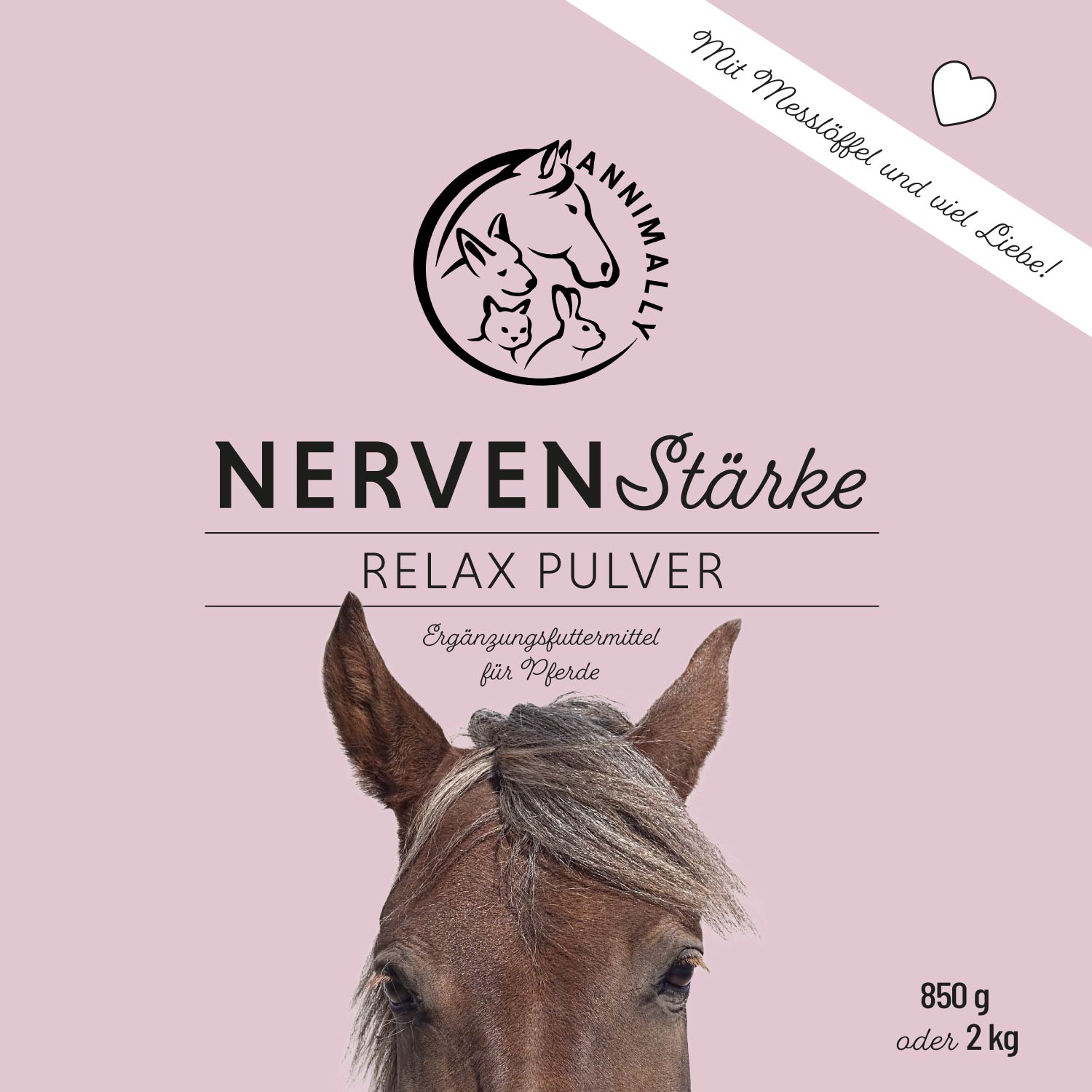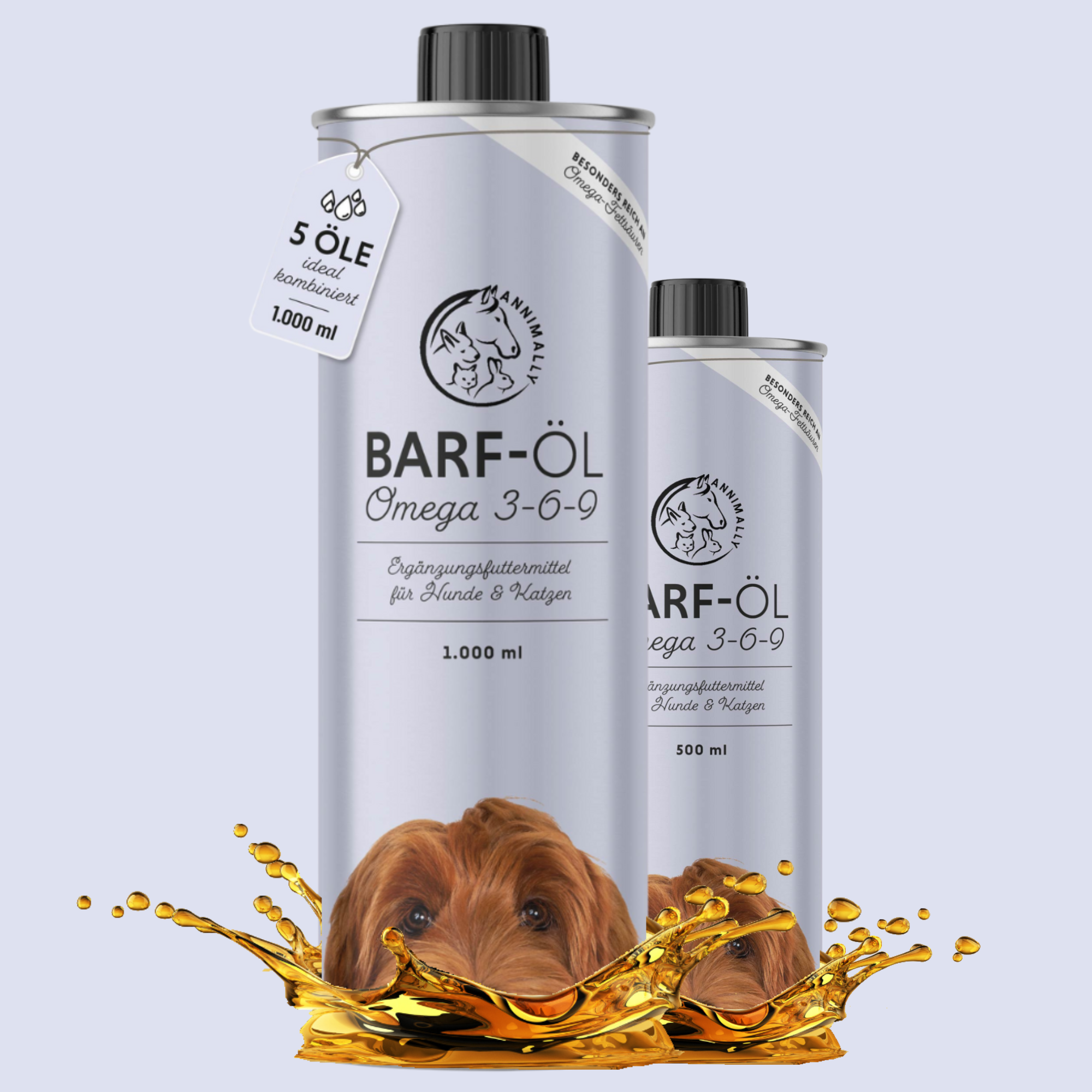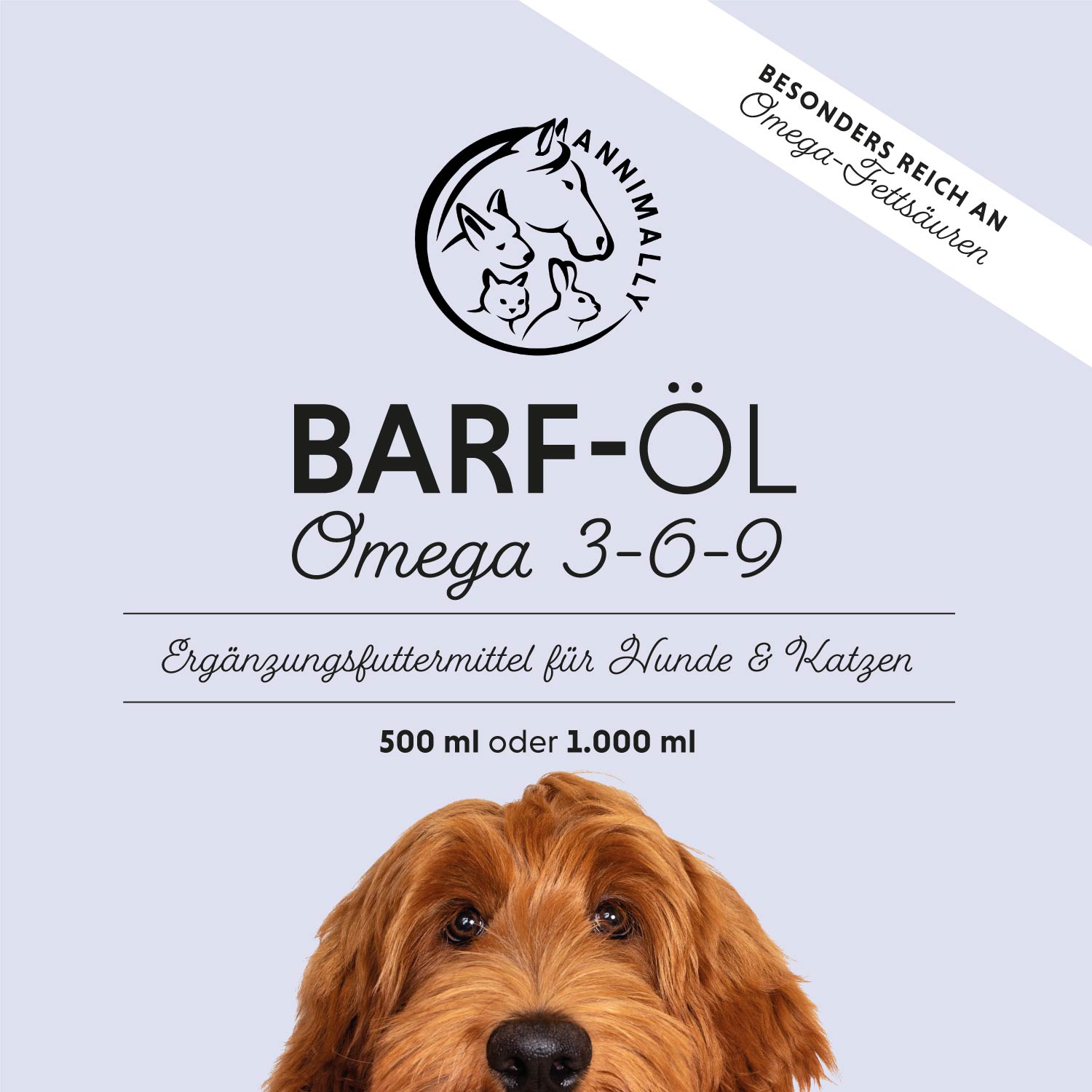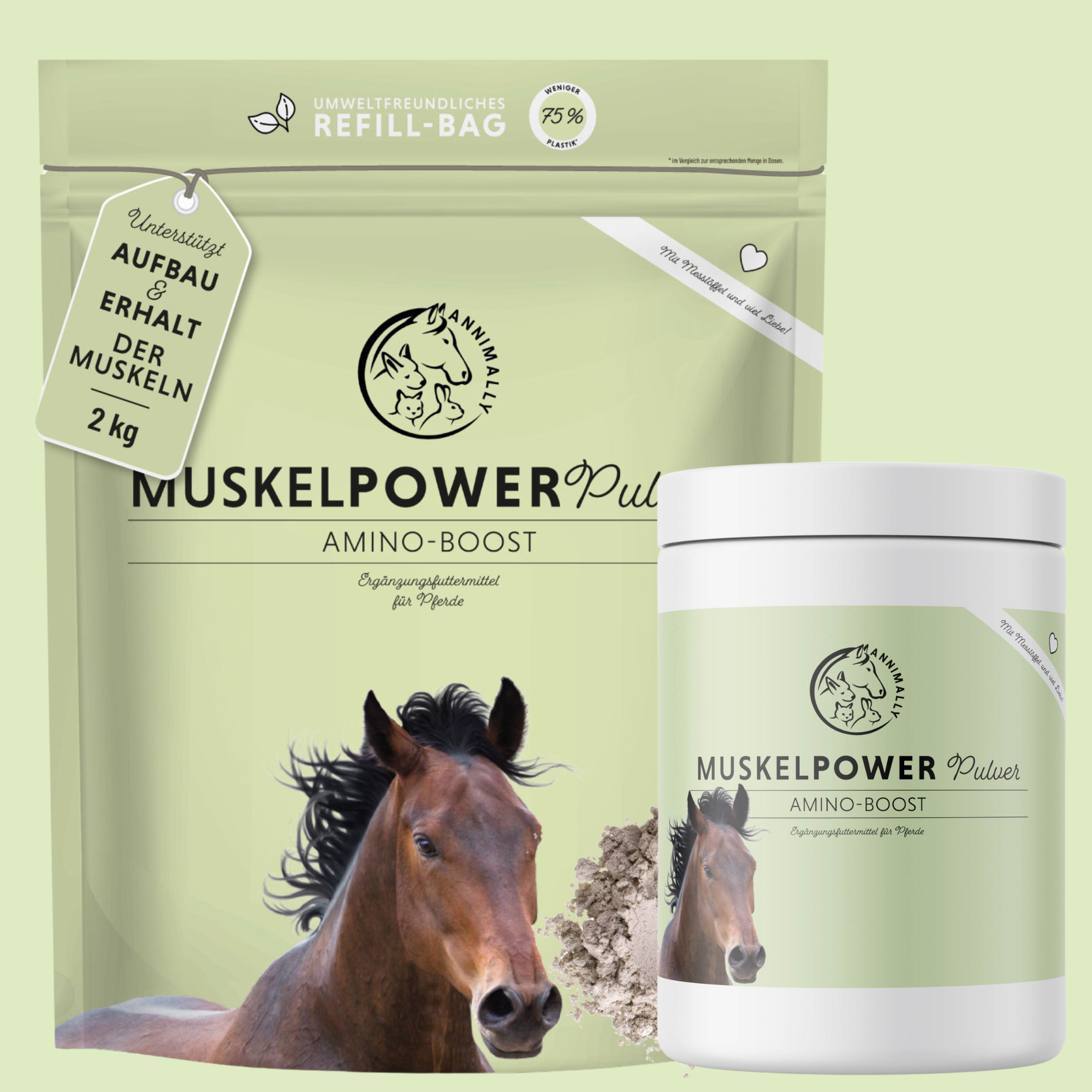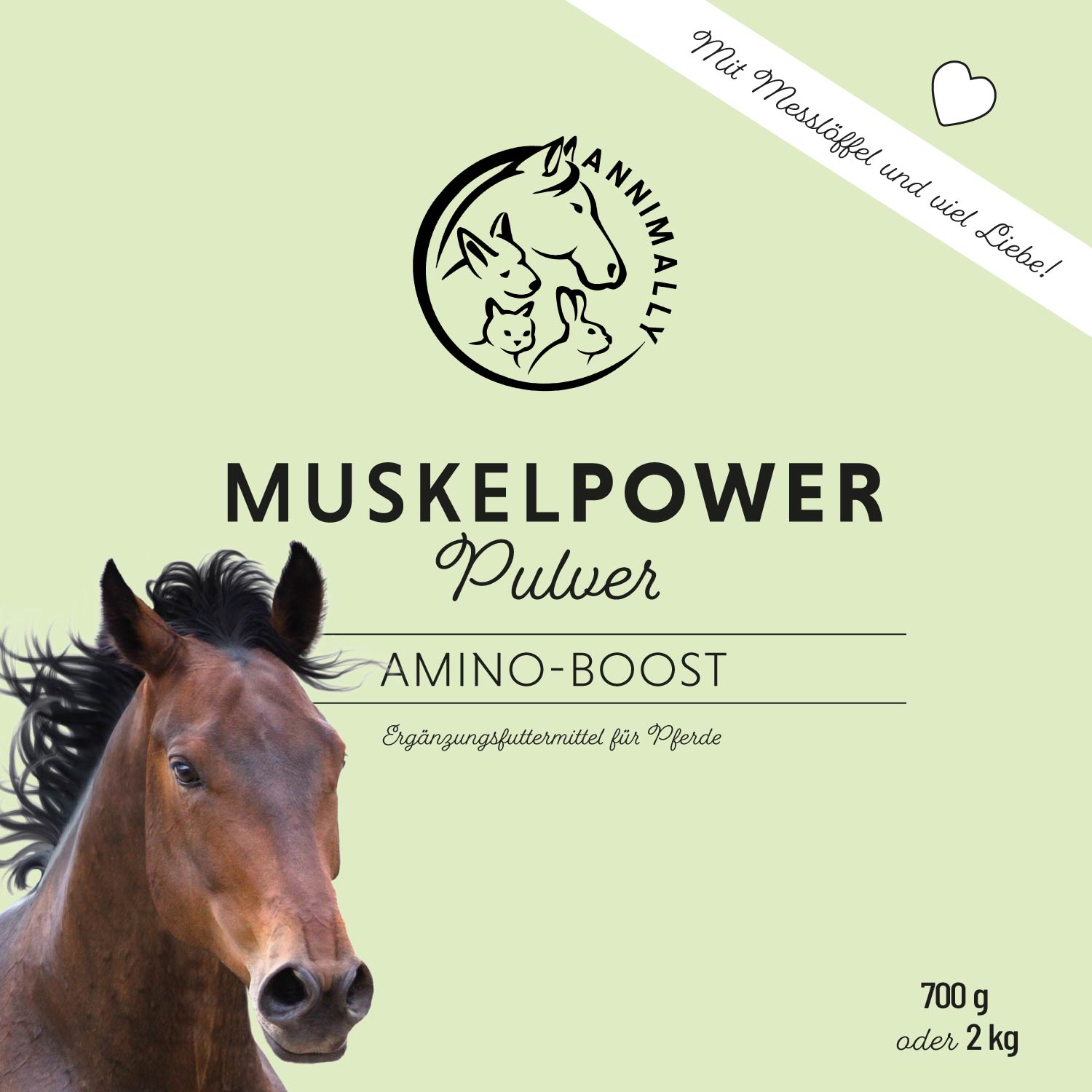
Histamine intolerance in dogs: Recognize symptoms and alleviate them with the right diet
Maybe you know this: Your dog is constantly scratching, keeps getting diarrhea, or suffers from chronic ear infections. You've tried everything possible—from changing his food to allergy testing to medication—but the symptoms keep coming back.
In such cases, it is worth taking a closer look at a topic that has so far received far too little attention in veterinary medicine: histamine intolerance in dogs.
This condition is somewhat more familiar to humans, but in dogs it's often an overlooked cause of a variety of health problems. It's particularly stressful for affected four-legged friends when their bodies overreact to histamine or are unable to break it down properly.
In this article, you will learn what exactly is behind histamine intolerance, how to recognize the typical symptoms, what role diet and environment play, and, above all, how you can relieve your pet's symptoms through targeted measures.

What is histamine and what role does it play in the dog's body?
Histamine is a so-called tissue hormone and, at the same time, a messenger substance that performs a variety of functions in almost every organism. It regulates blood pressure, affects the sleep-wake cycle, is involved in immune reactions, and even influences digestion.
Under normal circumstances, histamine is broken down in the body by the enzyme diamine oxidase (DAO). However, in histamine intolerance, this breakdown is disrupted. The result is elevated histamine levels, which can manifest themselves in a variety of ways.
It becomes particularly problematic when histamine accumulates in the body—whether through ingestion through food or through the body's own release during inflammation or allergic reactions. This is precisely where the vicious circle begins: The dog displays symptoms that are often confused with other illnesses, making targeted treatment significantly more difficult.
Why is histamine intolerance so difficult to detect in dogs?
The symptoms of histamine intolerance in dogs are often non-specific and resemble many other conditions, such as classic allergies, food intolerance, or a chronic inflammatory bowel disease like IBD. There is no definitive test that can quickly provide clarity. Instead, it takes good intuition, a lot of patience, and careful observation to identify histamine intolerance as the actual cause.
Many dog owners go through a veritable ordeal: countless vet visits, blood tests, medications, expensive allergy tests – without any noticeable improvement. The reason: The true cause often goes undetected because histamine intolerance is simply not considered.
The symptoms are more than just unpleasant for the affected animals. They severely impair their quality of life – both physically and mentally. Many dogs suffer in silence, becoming apathetic, irritable, or withdrawn. Their immune systems are working at their limits, their intestines are overwhelmed, and the constant histamine exposure leads to a multitude of other problems throughout their entire organism.
This is how histamine intolerance manifests itself in your four-legged friend: typical symptoms
The range of possible symptoms is wide – and this is precisely what makes histamine intolerance so difficult to grasp.
Itching , especially on the ears, paws or stomach
Many owners report recurring itching that appears to occur for no apparent reason. Often, the ears are affected, the skin becomes red or scaly, and sometimes even open eczema develops.

Problems in Gastrointestinal area
The gastrointestinal system also often goes haywire. Dogs with histamine problems are prone to flatulence, frequent vomiting, or persistent diarrhea. Some animals eat poorly or react sensitively to certain foods. The stomach appears distended, and stools vary in consistency and color. This is often accompanied by other problems such as fatigue, listlessness, or restlessness – which indicates a disturbed sleep-wake rhythm.
Behavioral abnormalities such as nervousness or aggressiveness
In some cases, behavioral changes may even occur. Does your dog suddenly seem nervous, anxious, or aggressive? This could also be related to a persistently elevated histamine concentration, as histamine acts directly on the central nervous system.
If you notice that several of these symptoms occur regularly and no classic trigger can be found, it is worth looking into the topic of histamine intolerance - especially if conventional medical treatments are ineffective.
Causes and triggers: Why does histamine intolerance occur in dogs?
The development of this disease can have a variety of causes. Some dogs have a genetic predisposition—their enzymes simply work less efficiently. Others develop the intolerance as a result of intestinal problems, after repeated doses of antibiotics, or through long-term feeding with low-quality food, such as dry food that has been stored for a long time and therefore produces more histamine.
External stimuli can also play a role: Contact with pollen, environmental toxins, or certain medications can overwhelm the immune system and promote inflammation in the intestines. These, in turn, impair histamine breakdown—a classic vicious cycle. Stress, whether psychological or physical, also negatively impacts histamine levels. And last but not least, hormonal balance also plays a crucial role.
How is histaminosis diagnosed?
Since there is no standardized laboratory test for histamine intolerance in dogs, the diagnosis is usually based on a process of exclusion.
First, other illnesses must be ruled out—for example, classic allergies, food intolerances, or parasites. In parallel, an elimination diet can be administered. This involves feeding the dog exclusively a single, well-tolerated source of protein and a single source of carbohydrates for several weeks. Horse meat, for example, has proven particularly suitable in many cases because it contains low histamine and is rarely allergenic.
If the dog's condition improves during this phase, it's likely that a reaction to histamine or histamine-producing foods is causing the symptoms. Specialized laboratories also offer the option of determining certain markers in the blood—such as DAO activity or direct histamine levels—but these tests often don't provide conclusive results.
What can you do? The right diet for histamine intolerance
A key aspect of treatment is feeding. You should make sure to feed your dog only fresh, low-histamine food. Long-stored meat, canned goods, or highly processed foods pose a high risk, because the longer a product is stored, the more histamine can build up.
Dry food is particularly critical because it's industrially produced and often has a shelf life of months. Offal, aged meats like beef or venison, and fish are also typical histamine bombs. Instead, you should opt for easily digestible, wholesome meats—horse meat, for example, is a good choice, as are rabbit or goat.
Gently cooked vegetables like zucchini, squash, or parsnips, as well as gluten-free carbohydrate sources like millet or amaranth, are ideal side dishes. Avoid additives, preservatives, and unknown food sources. The motto is: as fresh, as pure, and as simple as possible.
Preparation also plays a major role. Food should be cooked as fresh as possible and not reheated. Buy only small quantities and store them in the refrigerator. Freezing is possible, but make sure the meat is thawed quickly and without unnecessary intermediate storage. This way, you keep histamine exposure as low as possible.
Further supportive measures for histaminosis
In addition to nutrition, you can also specifically strengthen your dog's gastrointestinal tract. Disturbed digestion is often a contributing factor to the problem. Prebiotic supplements such as psyllium husk or special intestinal rebuilding supplements can help restore balance in the intestines.
Quercetin, a plant-based antihistamine, has also proven to be a natural support. Vitamin C and omega-3 fatty acids can also help regulate inflammation and strengthen the immune system.
However, every animal is different. What works for one dog may not work for another. Therefore, professional support from a veterinarian or animal health practitioner with experience in histamine intolerance in dogs is important.

Conventional medicine or naturopathy?
Conventional medicine currently offers only limited options for this condition. Antihistamines can provide short-term relief, but they don't address the underlying cause. Furthermore, they place a strain on the body and are not intended for long-term use. Long-term improvement can only be achieved through targeted, consistent changes in husbandry and feeding.
Naturopathic approaches, on the other hand, take a holistic approach to the dog. They focus on gently supporting the organism, building up the intestinal flora, stabilizing the nervous system, and reducing environmental factors. Combined with a low-histamine diet, this can significantly improve your dog's quality of life in a gentle way.
Conclusion: Know, observe, act
Histamine intolerance in dogs is a serious but often overlooked condition that can cause numerous symptoms—from itching and stomach problems to chronic inflammation. If you suspect your dog may be affected, it's worth taking a close look, documenting the symptoms, and adjusting your dog's diet.
With patience, consistent observation, and the right support, you can achieve a lot with histaminosis. Your dog will thank you – with more energy, better digestion, and a visible increase in vitality.






